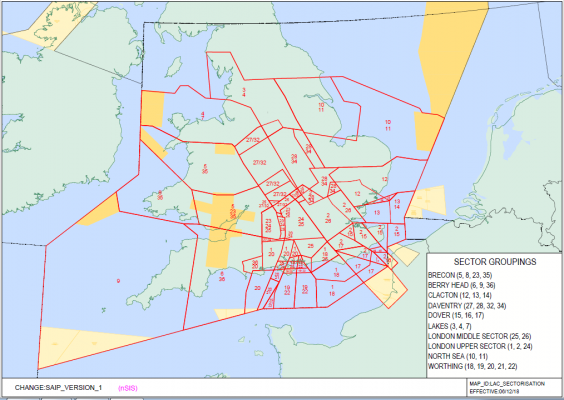Half-term travel: Squeeze in the skies as UK airspace expected to see record number of flights
Friday 24 May is forecast to be the busiest-ever day for Britain’s airspace.
NATS, the air-traffic provider, has told The Independent the present record of 8,854 movements a day – set on the corresponding day in 2018 – is likely to be broken.
Wendy Howard-Allen, head of Service Performance for NATS, said: “From Friday through the half-term is going to be very busy. We’ve done a lot of work to optimise airspace.” Many schools are breaking up for the half-term holidays in Friday, adding to the usual demand on what is traditionally the busiest day of the week.
With so many aircraft flying south and south-east from the UK to the Mediterranean, pressure will be heaviest on the Dover and Clacton airspace sectors, over Kent and Essex respectively.
Britain’s geographical position means that many flights between Europe and North America are routed over the UK. For example, the most direct route between Frankfurt and New York tracks from the Suffolk coast to Anglesey, while the shortest journey from Paris to Los Angeles enters UK airspace over Brighton and continues to the far northwest of Northern Ireland.

It is possible that the 9,000-movement mark could be exceeded – if not on 24 May, then on 31 May. That is the day before the Champions’ League final in Madrid between Liverpool and Tottenham Hotspur. The exodus of fans from Merseyside and London is expected to involve an additional 300 flight movements.
In addition, more flights are passing over the UK to avoid delays in other parts of Europe’s air-traffic control system.
“Eurocontrol is trying reduce delays in central Europe,” said Ms Howard-Allen. “We are taking some aircraft away from those very constrained areas of Europe.”
Last week, Thomas Reynaert, managing director of the lobby group Airlines for Europe, said: “The fact is, 2018 was one of the worst years for European air traffic control delays and flight cancellations in nearly a decade.
“Heading into the peak summer travel months, this trend is deeply concerning for airlines as it has a severe, direct impact on our passengers.”
Eurocontrol, which coordinates air-traffic systems, acknowledges the problem, saying: “The overall network capacity is less than it was in 2018.” The organisation attributes the increase in delays to staff shortages, particularly in Germany, as well as congestion at airports.
Britain has the busiest airport in Europe – Heathrow – and the busiest single runway in the world, at Gatwick.

